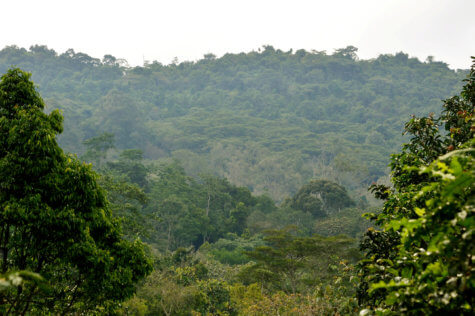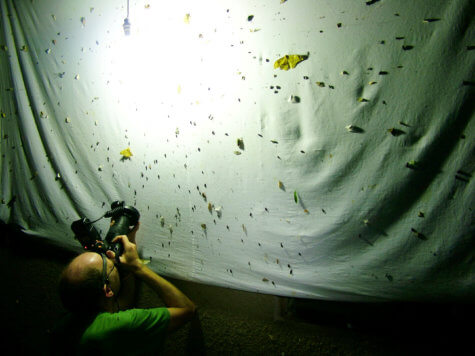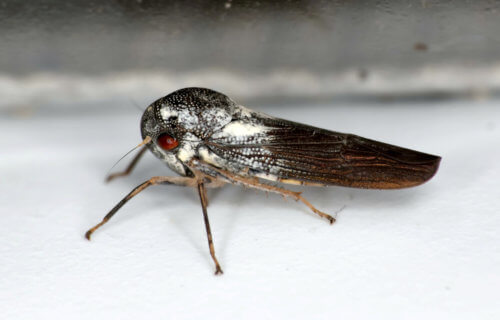CAMBRIDGE, England — A new incredibly rare species of an insect known as a “leafhopper” has been discovered in Africa in what experts are calling a “once-in-a-lifetime achievement.”
The insect was discovered in the rainforest of Kibale National Park in Uganda by researchers who had been carrying out field work in the area with their students. This shiny new species of leafhopper is so rare, its closest relatives were last spotted crawling around the Central African Republic in 1969.
Named Phlogis kibalensis, it has a distinctive metallic sheen and, like other species of leafhopper, uniquely-shaped male reproductive organs that partly resemble a leaf.

“To find this new species is a once-in-a-lifetime achievement, particularly as its closest relative was last found in a different country over 50 years ago,” says Dr. Alvin Helden, a member of the Applied Ecology Research Group at Anglia Ruskin University, in a statement. “I knew it was something very special as soon as I spotted it.”
Very little is known about leafhoppers, which are closely related to cicadas, only much smaller. The new species measures just 6.5mm long. They feed mainly on sap sucked directly from leaves and are a tasty snack for invertebrates like spiders, beetles, wasps, as well as birds.
“Leafhoppers of this genus, and the wider tribe, are very unusual in appearance, and are rarely found,” says Helden. “In fact, they are so incredibly rare that their biology remains almost completely unknown, and we know almost nothing about Phlogis kibalensis, the new species I found, including what plants it feeds on or its role in the local ecosystem.”
The researchers have been leading student field trips to the Kibale National Park, close to Uganda’s border with the Democratic Republic of Congo since 2015. They have documented many of the park’s insects and produced picture guides for butterflies, hawkmoths and tortoise beetles.

“There is so much still to find out, not just about this species but so many others, including the many species that are still waiting to be discovered. It is incredibly sad to think that some species will become extinct before we are even aware of their existence,” says Helden.
But many new species could never be discovered because of environmental threats like deforestation and climate change.
“There are some wonderful places, like the Kibale National Park in Uganda, where wildlife will survive, but outside national parks and reserves, the amount of rainforest that has been cleared in the tropics is devastating,” adds Helden. “Rare species could be living anywhere, but deforestation means it is inevitable that we will be losing species before we have discovered them.”
The findings are published in the journal Zootaxa.
South West News Service writer Tom Campbell contributed to this report.
